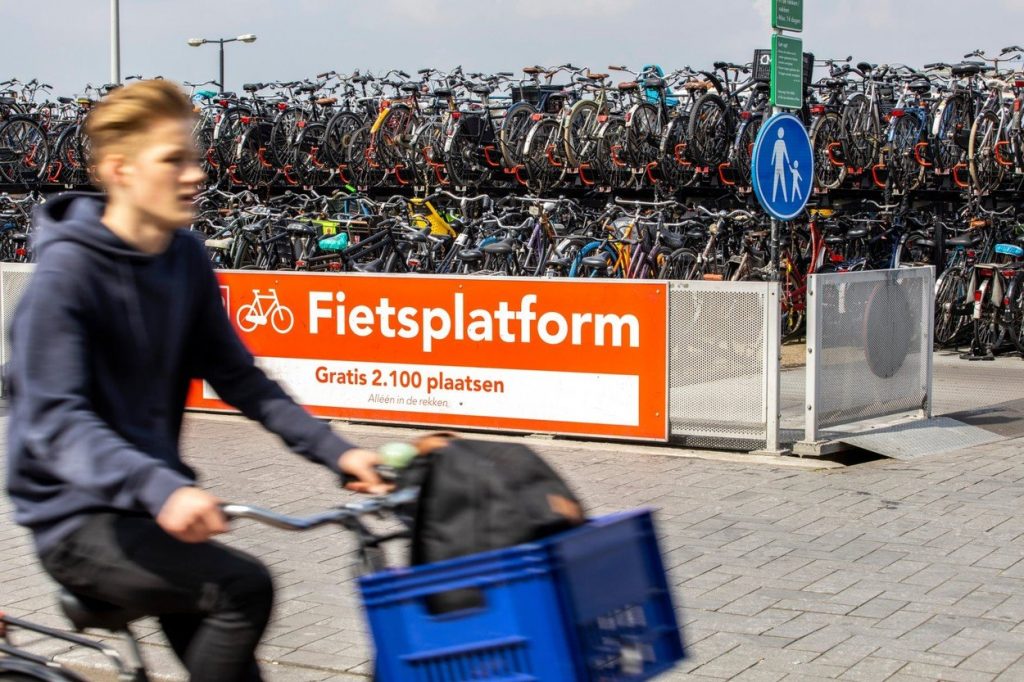The benefits of cycling are undeniable. With more bicycles on the streets, cities are becoming more lively while congestion is being reduced. The Handshake Project promises to turn major European cities into better places by introducing new cycling infrastructures, providing cycling movements with sophisticated advocacy, spreading the bike-sharing systems, building modern bike parking facilities, and improving the entire cycling environment.
Some cities like Copenhagen, Amsterdam, and Munich are no surprise participants while some other like Cadiz, Manchester or Krakow are rather new members to the bike-friendly-city family. The full list comprises 13 metropolises including Dublin, Bordeaux, Bruges, Turin, Rome, Riga, and Helsinki.
https://www.instagram.com/p/Bz-h9PRIJg0/
Officially kicked off in Copenhagen in 2018, the project is set to run until February 2022. This April, there was a meeting in Amsterdam where participating cities had the opportunity to learn how the local cycle path network has been developed and what made Amsterdam one of the safest places for cycling in the world.
Each participating city should learn from the next in finding new solutions, inspiration, and improvements. Ninna Hedeager Olsen, the Mayor of Technical and Environmental Affairs in Copenhagen, described that even in her city things still could get better. “If Copenhagen is to be the world’s best city for cyclists, we have to be at the cutting edge so we don’t get left behind. Copenhagen has a very good bicycle infrastructure but when it comes to bicycle parking facilities and handling abandoned bikes, Amsterdam is 10-15 years ahead of us. We need to learn from their best practice,” Mrs Hedeager said.

Next year, real cycling solutions are about to roll out in all of the Handshake cities that are going to implement know-how gained by the world-renowned bike capitals. In only three years, we should witness all cities enrolled in the program showing off their new cycling superpowers. The plan sees tens of thousands of daily cycling commuters in the streets and 37,5 % reduction in cycling accidents. The entire process should bring relief from congestions. Building new infrastructure also includes bridging gaps between individual cycling paths, giving people no reason to avoid daily cycling.
Several cities considered a collaboration with the so-called cycling mayors – experts in cycling matter. This included Chris Boardman as Cycling Commissioner in Greater Manchester who was appointed in 2017, and the “world’s first” bicycle mayor in Amsterdam, appointed in 2016. Current Amsterdam cycling mayors such as senior Katelijne Boerma and Lotta Crok are bringing together the private and public realms to increase cycling possibilities. Lotta was elected to the post of a junior cycling mayor at the age of eight, a few years after she introduced public transport bikes for kids and public transport tandems. This way Dutch people showed the world that even the kids’ points of view are decisive in building the infrastructure of a modern city.

One of the significant solutions is the so-called land-use planning, ensuring that links are made between cycling and onward modes of transport such as buses and trains. This kind of approach is based on planning and developing cycling hubs at railway stations and big parking lots for bikes at other key locations. Nowadays, about half of all train passengers in Amsterdam use the bike to ride to the station. The plan is to get even more people using a bicycle as one of the transport means in the transport chain. Another step is the integration of cycling with all transport services, which means easy ticketing and spaces for bikes provided on trains, metros, and taxis.
Awareness and education are also part of the game as Handshake supports the delivery of information to key audiences including school children. This is one of the solutions that would turn future cities into livelier and greener environments.




